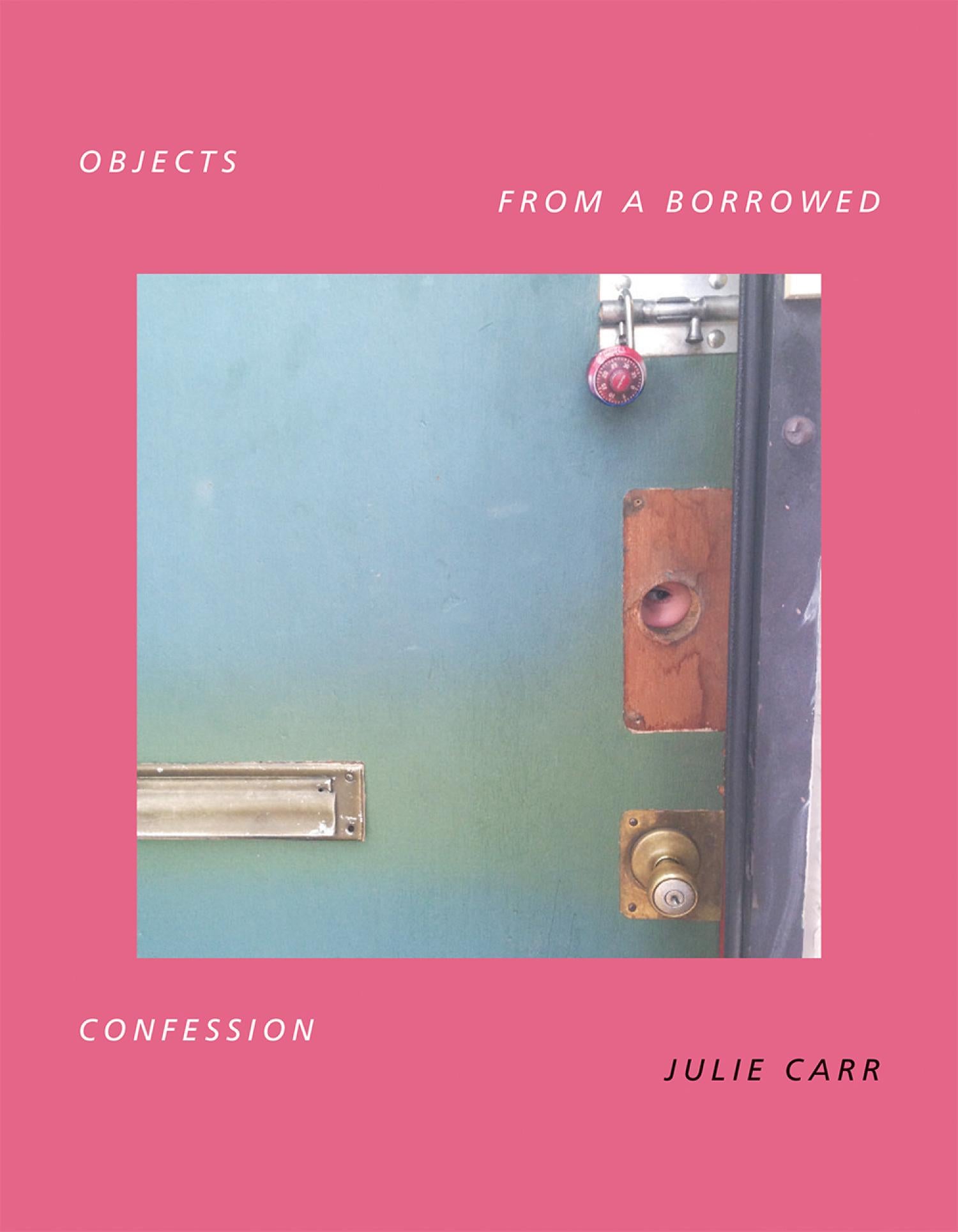Objects from a Borrowed Confession, Julie Carr

Julie Carr's new work, Objects from a Borrowed Confession, was recently published by Ahsahta Press.
From the Publisher's Page
With Objects from a Borrowed Confession, poet Julie Carr has undertaken an expansive reexamination, amassing a project written over the last ten years that approaches the subject of confession from within the confession itself. Carr neither mounts an apology on behalf of confessional poets (there is no apology necessary), nor does she offer readers a straightforward critical appraisal of confession in writing itself. Rather, the poet approaches her topic as a theme worthy of consideration, offering fresh insight to what it is about the confessional text that can provide catharsis for one reader just as easily as make another uncomfortable.
A one-sided epistolary novella whose speaker writes to an ex-lover’s ex-lover begins this volume, and Carr charges these unanswered, unanswerable letters with inquiries that permeate the book: How do we understand grief, obsession, the very nature of forgiveness? Why confess? Whom does my confession benefit? For whom do I intend it? Carr’s lyrical prose guides the reader through these questions by way of inhabiting shared spaces and experiences. The poet’s dexterous handling of these shifts between essay, epistolary, poem, and memoir, allows each movement within the book its own unique music––melodies, which, taken in whole, create intoxicating harmonies for the attentive listener. The result is a book emotionally complex and intellectually thrilling, brimming with crystalline prose and formal expertise from one of contemporary poetry’s most distinct voices.
“Objects from a Borrowed Confession vibrate/s with analyrical fervor, situated intimacy shared, a profound anti-generic communicability running over every edge, terribly beautifully trying to get at something. Having been given an all-but-impossible range of revelation, Julie Carr offers careful and intense imperatives for telling sung strained, estranged, touchingly, with an absolute precision of touch, hands laid on what she hands, all up in all she gives, having put her foot in it, too, dancing words with absolute flavor, preparing a table for pleasure and necessity improvised in contact, turning toward everything in turning toward you.” —Fred Moten
Review and interview with Electric Literature
Review from Library Journal
Review and recommendation from Ms. Magazine


